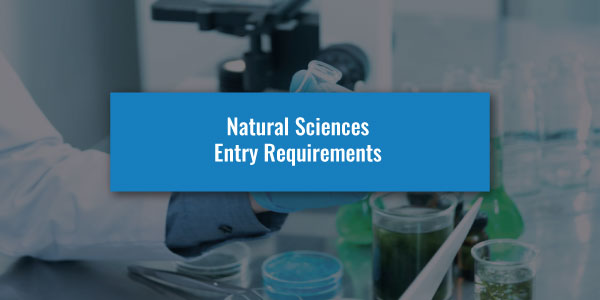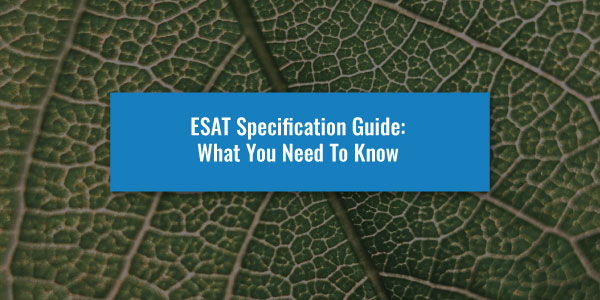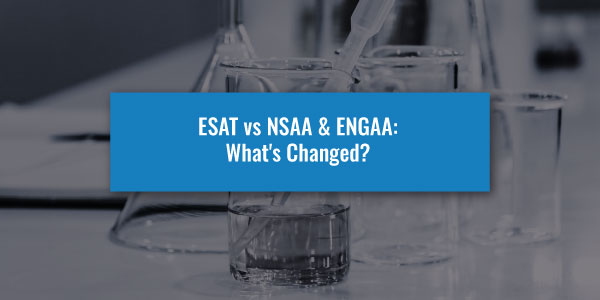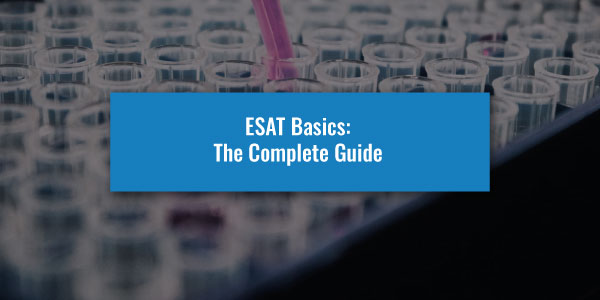Cambridge Assessment Admissions Testing has made some changes to the Natural Sciences Admissions Assessment specification.
These changes are fairly minor and should not have an impact on your preparations for the Admissions Test.
We will go over everything you need to know about the NSAA changes.
Summary of the NSAA changes
- Sections 1 and 2 Chemistry: clarifications to the knowledge assumed in section C7.
- Section 2 Advanced Chemistry: addition of the initials ‘VSEPR’.
- Sections 1 and 2 Biology: clarifications to the wording of the specification have been made.
- Section 2 Advanced Biology: this section is new for 2022.
Maximise your NSAA score through effective NSAA preparation.
The NSAA exam is a vital component of your Natural Sciences or Veterinary Medicine application so scoring highly can mean the difference between an offer or rejection. At UniAdmissions, we are experts at boosting your NSAA score and maximising your chances of gaining a place to study Natural Sciences or Veterinary Medicine.
Discover our NSAA Programme by clicking the button below to enrol and triple your chances of success.
NSAA Chemistry Changes
Sections 1 and 2 Chemistry
In both of the Chemistry sections, there have been clarifications to the knowledge assumed in section C7 (Group Chemistry), with the changes being made to C7.2 and C7.3a.
If we compare point C7.2 in the 2021 and the 2022 specifications, we can see these changes.
2021: Describe the trends in chemical reactivity and physical properties of the alkali metals (Group 1) and make predictions based on those trends.
2022: Describe the trends in chemical reactivity and physical properties of the alkali metals (Group 1) and make predictions based on those trends. This includes knowledge of the relative positions of lithium, sodium and potassium in Group 1.
As for C7.3a, the clarification is as follows:
2021: Describe the trends in chemical reactivity and physical properties of the halogens and make predictions based on those trends.
2022: Describe the trends in chemical reactivity and physical properties of the halogens and make predictions based on those trends. This includes knowledge of the relative positions of fluorine, chlorine, bromine and iodine in Group 17.
Section 2 Advanced Chemistry
A very minor change has been made in the Section 2 Advanced Chemistry specification.
This change has been made for clarity’s sake.
In the Bonding and Structure specification, under AC2.4 the abbreviation ‘VSEPR’ has been added after ‘valence shell electron pair repulsion model’.
NSAA Biology Changes
Sections 1 and 2 Biology
Throughout the two sections, there have been clarifications made to the wording, and this has included some additions to the terminology used, specifically in points:
B3.1; B3.2, B4.2j, B5.2; B6.2; B8.1 and B9.5a.iv.
Additionally, knowledge of thyroxine is no longer required within point B9.4b.
Section 2 Advanced Biology
In what is the most significant change to the NSAA specification, Section 2 Biology will now assume advanced knowledge.
In previous years, Section 2 did not require any additional knowledge of content beyond that of Section 1.
However, those sitting the NSAA this year will now be assumed to have knowledge of specified additional ‘Advanced’ content.
This brings Part Z, as the Section 2 Biology component is also known as, in line with Physics and Chemistry Section 2 questions which already assumed advanced knowledge.
Candidates are expected to apply conceptual knowledge to deconstruct and solve problems. Some questions involve the straightforward application of this knowledge, but others require more creative thinking, problem-solving, and the application of principles in less familiar contexts.
Conclusion
It is important to note that there have been no changes made to Mathematics and Physics Section 1 or 2.
Candidates should not be put off by the changes, which really are incremental and should be welcomed by candidates.
The clarifications to the specification mean that you can be certain of what the examiners are looking for.
Good luck in your NSAA!
Looking to score highly on the NSAA?
The NSAA exam is a vital component of your Natural Sciences or Veterinary Medicine application so scoring highly can mean the difference between an offer or rejection. At UniAdmissions, we are experts at boosting your NSAA score and maximising your chances of gaining a place to study Natural Science or Veterinary Medicine.
Discover our NSAA Programme by clicking the button below to enrol and triple your chances of success.







